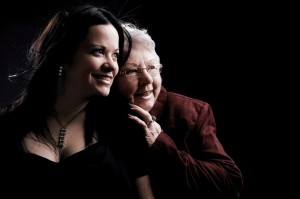- Calls to this hotline are currently being directed to Within Health, Fay or Eating Disorder Solutions
- Representatives are standing by 24/7 to help answer your questions
- All calls are confidential and HIPAA compliant
- There is no obligation or cost to call
- Eating Disorder Hope does not receive any commissions or fees dependent upon which provider you select
- Additional treatment providers are located on our directory or samhsa.gov
Family Support… It’s Complicated
 A supportive family has been shown to be helpful for successful recovery from an eating disorder but what is a supportive family and what if you have an eating disorder and you don’t have adequate family support?
A supportive family has been shown to be helpful for successful recovery from an eating disorder but what is a supportive family and what if you have an eating disorder and you don’t have adequate family support?
Families are neither all “good” nor all “bad” and it’s important to avoid, and help our clients avoid, such reductive categorization. Regardless, many clients do not get the support they need for a variety of reasons.
Sometimes there are complications beyond the family’s control…maybe another family member is severely ill, or there is simply a lack of education about eating disorders (e.g., Dad told me “to just get over it.)”
Why the Family Should Be Involved
At Monte Nido we are committed to involving the family because we know that families do not cause eating disorders and they can be a powerful resource in the journey to recovery. An unsupportive family can be overcome, and turned into an ally through education and skill building.
And if for some reason, they are unwilling or unable to be supportive, clients must come to an understanding of this that allows them to move forward and get better.
We have seen clients overcome barriers and resentments in their familial relationships just by letting them into the process of treatment. On rare occasions family members do not want to be involved in treatment, but more often than not the individual with the eating disorder is the one that is opposed to family involvement.
Most families are very grateful to be let in…to be given a seat at the table and make the transition from helpless bystander to team member. Most want to help.
“What if they don’t change?”
We are all deeply impacted by our family systems. It is important to explore our family dynamics and understand how they may have contributed or tend to perpetuate our current circumstances.
However, there are times when clients are so focused on their family members need to change, that they lose sight of who is responsible for their recovery, and on the changes they need to make for their own recovery to progress.
In this moment we usually ask clients to consider the question- “what if your family doesn’t change?” Are you willing to take steps towards change now, rather than waiting for others to do so first?
What has helped others?
 Forgiveness is a necessary ingredient for getting past hurts from the past. Forgiveness does not have to mean that there is a perfect repair. Forgiveness is the ability to hold compassion for those you are forgiving and look beyond hurt feelings, while also allowing for validation of your own feelings.
Forgiveness is a necessary ingredient for getting past hurts from the past. Forgiveness does not have to mean that there is a perfect repair. Forgiveness is the ability to hold compassion for those you are forgiving and look beyond hurt feelings, while also allowing for validation of your own feelings.
Trust yourself and your team. Allow yourself to listen to your internal voice about what you can handle but collaborate with a trained therapist who can support you while also appropriately challenging you and encouraging growth.
Therapy may push you beyond your comfort zone, when dealing with family matters but this is necessary to create change.
Leaving the Past Troubles Behind
Appreciating the good rather than scanning for what’s wrong. When you find yourself ruminating on old wounds and your blood beginning to boil, you are scanning for what’s wrong. It is important to interrupt this line of thinking when it comes up.
One exercise to practice is to try to search for something positive or neutral about the relationship and spend time focusing on that.
Acceptance. Many people feel ashamed if they have a problematic relationship with their family. This shame acts as part of the cycle of dysfunction in the relationship by feeding the anger and hurt. Accept that some things may not change and that you need to put them in perspective.
Working toward accepting things the way they are, and practicing non-judgment are helpful strategies toward reducing reactivity to family interactions.
Building a Sense of Community
 Building a sense of community. Having support is essential to recovery. Fortunately there are many ways to build a supportive community, like finding mentors or friends and/or participating in group therapy.
Building a sense of community. Having support is essential to recovery. Fortunately there are many ways to build a supportive community, like finding mentors or friends and/or participating in group therapy.
Don’t underestimate how much relationships can change with recovery. We have seen many clients who felt hopeless about their relationships with their family, only to find that including their family in their recovery improved their relationships markedly.
Healing and Growth Is Possible
The reality is that many family dynamics do repair as the person begins to recover. Dealing with a loved one who has an eating disorder can be very difficult and draining and throws things out of balance.
This is not to say that the eating disorder is the sole reason for dysfunction in the family. Another factor we see is that as the person with the eating disorder becomes stronger and better able to set limits they are both less affected by family members and are better able to take care of themselves and set limits in areas where appropriate.
In doing this, they can also inspire growth and change in the family.
Contributor: Tabitha Limotte, LMFT, Clinical Director, Eating Disorder Treatment of New York, Monte Nido & Affiliates
The opinions and views of our guest contributors are shared to provide a broad perspective of eating disorders. These are not necessarily the views of Eating Disorder Hope, but an effort to offer discussion of various issues by different concerned individuals.
Reviewed By: Jacquelyn Ekern, MS, LPC on November 27th, 2014
Published on EatingDisorderHope.com

